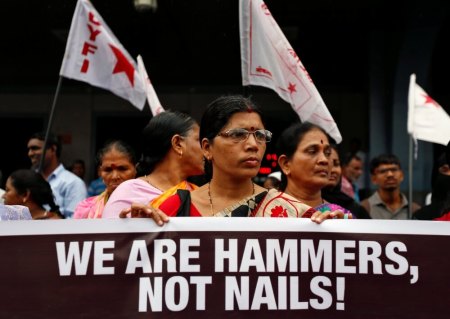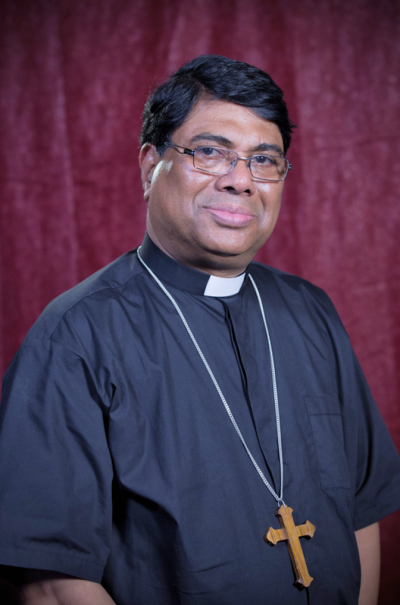The Cry of India's Daughters

In mid-July of this year, an 11-year-old girl was returning home after visiting her grandfather. When she failed to arrive home her worried parents reported her missing.
Her body was found the following day under a tree. Her teeth were smashed. Her face disfigured. Her hair pulled out. Her shoulders dislocated, and her private parts mutilated. She was gang raped and killed by three men.

Not two weeks later, a 14-year-old girl took her last breaths as she laid in a hospital bed. She had been kidnapped by a group of men — and a woman — who tied her hands and feet and raped her. Instead of being given food, she was forced to drink a corrosive chemical, which led to months of pain and, ultimately, her death.
These stories are neither pleasant to recount nor read; but it's the reality millions of girls today. The only crime these two committed to deserve the punishment they received was being born a low-class, Dalit girl in India.
As I wrote earlier, the Dalits of India — also known as "untouchables" — are fighting the biggest civil rights battle of our time. For millennia they have been marginalized, forced to do the work of slaves and deprived from basic human rights. Because of their "ignoble" birth, they have only known abuse and torment, and the world, as a faithful, silent accomplice of history, has stood by as hundreds of millions of men, women, and children are ground into submission.
Today a revolution — sparked by the public beating of four Dalit men, which also happened in July — spreads across India like wildfire. But this revolution is not just about better jobs, access to education, or even social acceptance; it's also about the lives of Indian women, especially girls.
In 2014, India's National Crime Records Bureau released the shocking statistic that every day more than four Dalit women are raped in India. Oftentimes the perpetrators of these crimes, who usually belong to higher social classes than their Dalit victims, are never brought to justice. In one of the most extreme cases, a woman was gang-raped twice by the same assailants, the second time while they were on bail awaiting trial for the first offense.
Such atrocities sound barbaric, even primitive, to the western mind, yet they are the clear product of the systematic ostracism of one people over another. And sadly, they are not the only kind of exploitation India's daughters suffer.
Early this summer, the U.S. Department of State released its yearly report on the state of worldwide human trafficking and slavery for forced labor and sex.
"Experts estimate millions of women and children are victims of sex trafficking in India. Traffickers use false promises of employment or arrange sham marriages in India or Gulf States, and then subject women and girls to sex trafficking. In addition to traditional red light districts, women and children increasingly endure sex trafficking in small hotels, vehicles, huts, and private residences," said the report's section on India.
And of these millions of Indian women and children suffering sexual exploitation today, Dalits face the greatest threat:
"The majority of India's trafficking problem is internal, and those from the most disadvantaged social strata — lowest caste Dalits, members of tribal communities, religious minorities, and women and girls from excluded groups — are most vulnerable."
This is what the Dalit uprising is truly about: restoring the value of every human life in a society that has forgotten we are all created equal.
Lately, India's government has made important strides towards fighting human trafficking. In March, Maneka Ghandi, minister of Women and Child Welfare, unveiled the draft of India's first-ever comprehensive law on human trafficking. If passed, the bill will expedite justice against traffickers and help victims rebuild their lives.
News of this bill encourage all Indians who are thirsty for justice and peace. I have full confidence that this present government could be the liberator of millions should it have the moral courage to do so
In the end, individual change is as important as collective change. Social transformation must occur not only in the halls of parliament but also in the living rooms of our homes. If families — the foundational blocks of every society — do not to teach their sons the value of daughters, no law will truly be able to stop the rape and enslavement of innocent women and children.
Until we learn this, India's daughters will continue crying for equality, freedom, and safety. It's time we stop and listen to them.





















